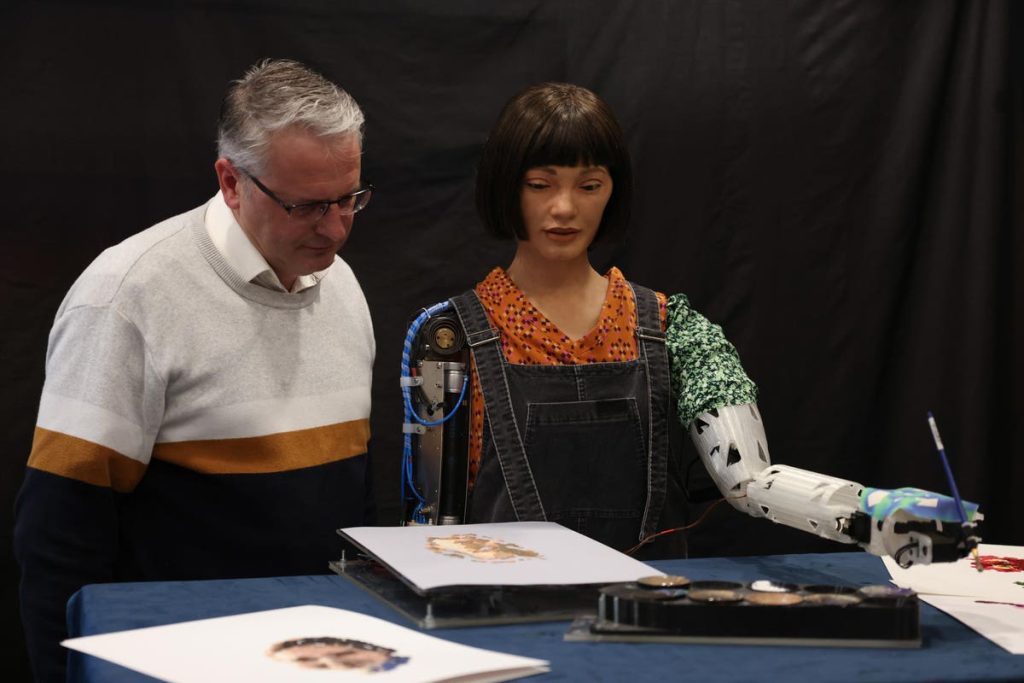Large language model artificial intelligence programs like ChatGPT by Open AI, others coming from the likes of Google
GOOG
MSFT
Already writers, editors, journalists, photographers, illustrators, artists, models, actors, administrative assistants, and others in creative fields are seeing work beginning to slip away. The process will continue because corporate executives want to cut out expenses to increase profits. They will say that it frees workers to do more important work, but that is a lie. There isn’t enough of that more important work to employ all the people who will lose their jobs.
And it isn’t stopping there. Wendy’s is training AI bots to replace humans taking orders at fast food drive-through windows, reports the Wall Street Journal. “It will be very conversational,” the company’s CEO Todd Penegor told the paper. “You won’t know you’re talking to anybody but an employee.”
The Street wrote about Carl’s Jr. and Hardee’s doing something similar and how the technology “increases revenue, improves labor productivity, and enhances the guest and staff experience.” The publication also ran the headline, “These Fast Food Chains Using AI to (Finally) Get Your Order Right.” Interesting implications. “Get rid of the damned humans already and get me my fries and burger with extra pickles.”
There was mention at the end of customers already complaining and the negative impact on staff. The former get mad when AI also makes mistakes, and the latter are upset about jobs disappearing. “Improves labor productivity” is corporate speak for “we get to cut jobs that society might need.” They don’t say it in that way publicly because it’s bad PR.
The dissembling has worked because society waves off these jobs as unimportant. Get more training or learning, do something robots and software can’t take away. Ultimately, what would that be? In 2015, there were already anesthesiologists and surgeons being displaced as robotic systems allowed professionals respectively to oversee anesthesia for multiple colonoscopy procedures or perform hair transplants on more than one person at the same time. That was eight years ago. What will they be able to do in a few more?
Need programming? Ask a chat bot to do some for you. Legal work? Already in progress. Financial advisors? AI will do that as well.
Many people regularly tell themselves lies passed on from one person to the next. Lies like technology always creates more jobs than it destroys. Tell that to people in the Rust Belt who have seen so much manufacturing work moved overseas and then that reduced by the introduction of robots because humankind reveres efficiency. Look back at the people who had to give up handcraft work to work in the factories that replaced them during the Industrial Revolution, and then read about what life was like for them. Terrible. Or mills and other production facilities closed in one part of the country to move to where they could pay people even less, treat them even worse.
There weren’t other jobs available and with AI and robotics, there will be even fewer because that is the point. Not to create the same number of jobs for people, though more skilled and at better pay. The object for companies is to reduce the total number of employees and pocket the extra.
How many AI programmers will the country really need? According to the Bureau of Labor Statistics’ occupational handbook for software developers, quality assurance analysts, and testers, the number of jobs in 2021 was 1,622,200 with 25% growth through 2031. Add in computer and research scientists and there are an additional 33,500 jobs with 21% growth.
How many food and beverage service jobs? More than 4.1 million. And another 817,400 in food preparation. When industry begins to cut heavily into jobs through automation, where do all those people go?
So many people accept the myths and gloss over the impact for a few reasons. We all want to cut out expenses for what we want, usually because what we make doesn’t really keep pace with the full costs of living. As economists at the left-leaning Economic Policy Institute have shown, starting in 1979, the gap between productivity and nonsupervisory workers has increased dramatically.
Some reasons, according to EPI: toleration for excess unemployment to check inflation, smaller and rarer increases in federal minimum wage, cuts in tax rates on the wealthiest, and deregulation of industries. “In essence, policy choices made to suppress wage growth prevented potential pay growth fueled by rising productivity from translating into actual pay growth for most workers.”
The bulk of the country lives under an ongoing fear of precarity, of always being at the edge. A low-grade permanent fight-or-flight response with no final resolution.
And then there is the titillating thrill of high-tech toys, the latest and greatest that you, too, can use for free. Except, as the now old saying notes, “If you’re not paying for the product, you’re the product.” The genesis of that goes back to at least 1973 and television, according to the site QuoteInvestigator.com.
We get consumed and happily. Something to distract from the grim realities, using offerings designed to capture our attention and create a dependence on dopamine hits, as former insiders at some of the biggest companies in the world have admitted. But we’re walking with a blindfold on a path that could truly destroy the economic fabric of tens if not hundreds of millions of lives in the U.S. alone.
It’s good to remember that we don’t have to, no matter how many with personal benefits to gain insist on inevitability.
Read the full article here
